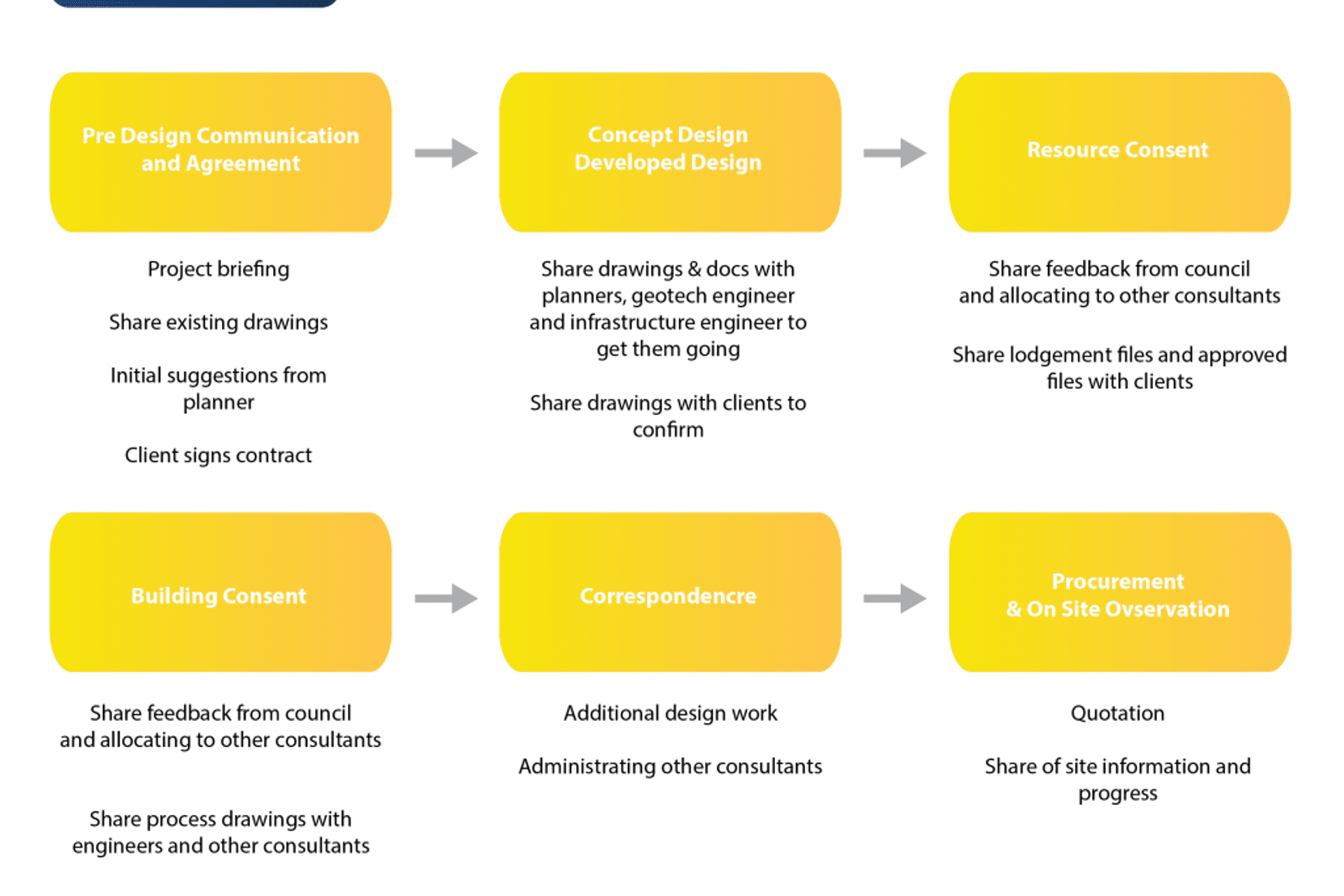For Architects, project management must be simple and clear.

Collaborative Workflows
All of this collaboration involves a lot of back and forth and that’s not just emails. Communication often involves discussion over designs with images and documents flying backwards and forwards across the ether.
This is one of the main reasons that mainstream software tools don’t tend to work so well for architects. They aren’t built with this kind of complex collaborative workflow in mind. Marketing agencies, software developers and other consultancies don’t have those multi-channel collaborative projects where it’s normal for four or five different companies to actively contribute to a project.
The image below is a simplification of a pretty standard architectural workflow. Only the macro-project stages are represented but even at the macro level there’s clearly a significant amount of back and forth between key partners.

So any tool trying to help manage this workflow needs to help with more than just the internal project management. Collaboration management is incredibly important. At a minimum, architects need a way to manage document version control and to organise their records so that documentation and past communications are easy to find. People working off outdated drawings cause pointless and avoidable delays.
Your clients have the same problems you do
The client is the center point of any project, after all, they’re the boss. They’re spending a lot of money and they need to be kept happy throughout the process. That means getting their approval of your designs, moving projects through council at a reasonable pace and making sure they approve any changes that happen along the way.
Collaboration with clients can be more demanding than working with partners. Clients will need more hand holding than partner consultancies. There is often an emotional side to their decisions and it is sometimes their first time going through the design, consent and development process. They have lots of questions and some that they’ll ask several times.
Clarcs founder, Owen Xing, an architectural consultant himself, realised that the problems clients experience and the issues architects face are two sides of the same coin. If clients can’t find their emails and have to repeatedly call or email with confused repetitive questions, it takes up a lot of an architect’s time. Regardless of how organised the architect is.
Everybody needs an audit trail
There’s also the legal ramifications of all this back and forth. Everyone in the construction industry works very hard to ensure that everything is clear and agreed up front and that everything is delivered as per the customers understanding. The reality is mistakes and misunderstandings happen. Disputes are unavoidable in such a complex industry and information and communication records need to be relied upon to resolve these issues.
So when you combine a highly collaborative workflow with a communication and approval process that needs to be airtight, you have a small problem. A small problem that can grow insurmountably and become a big headache. When a client or consultant calls three months after a design was completed to ask (or dispute) what was agreed upon for one of your projects, you can end up wasting a lot of time looking for the designs and approved documents trying to dig up an answer. Or worse, you can never find that answer and leave yourself exposed or having to repeat work you had done previously.
Designed by architects for the whole industry
It was because he was frustrated by these issues that Owen created Clarc. The management software available in the market didn’t go far enough. They didn’t help you manage your projects and help you collaborate with partners and clients. And they didn’t solve your clients collaboration issues either. A collaboration solution that only solves the problem for half of those involved isn’t really a solution at all.
That’s the problem Clarc was created to solve. One platform that streamlines the entire development process for all parties involved. Project management and collaboration management for all, combined into one easy to use tool.
Our motto – Work together, work simple.
